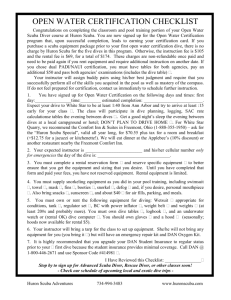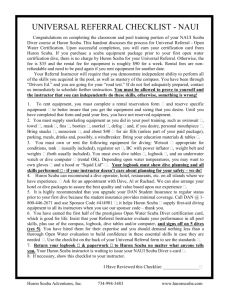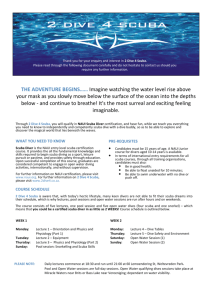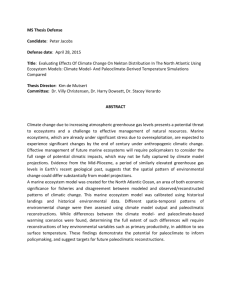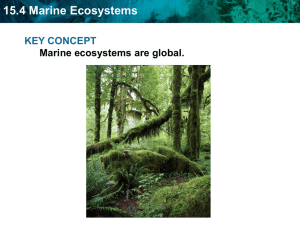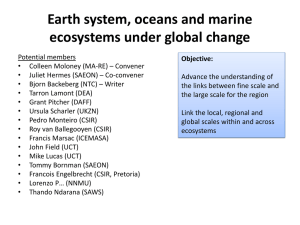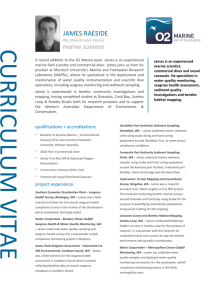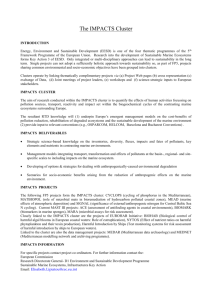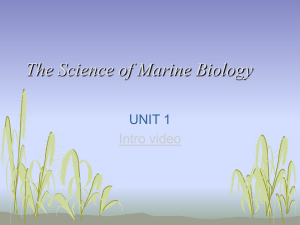Sponge Biodiversity in a Changing Ocean - Thacker Lab
advertisement
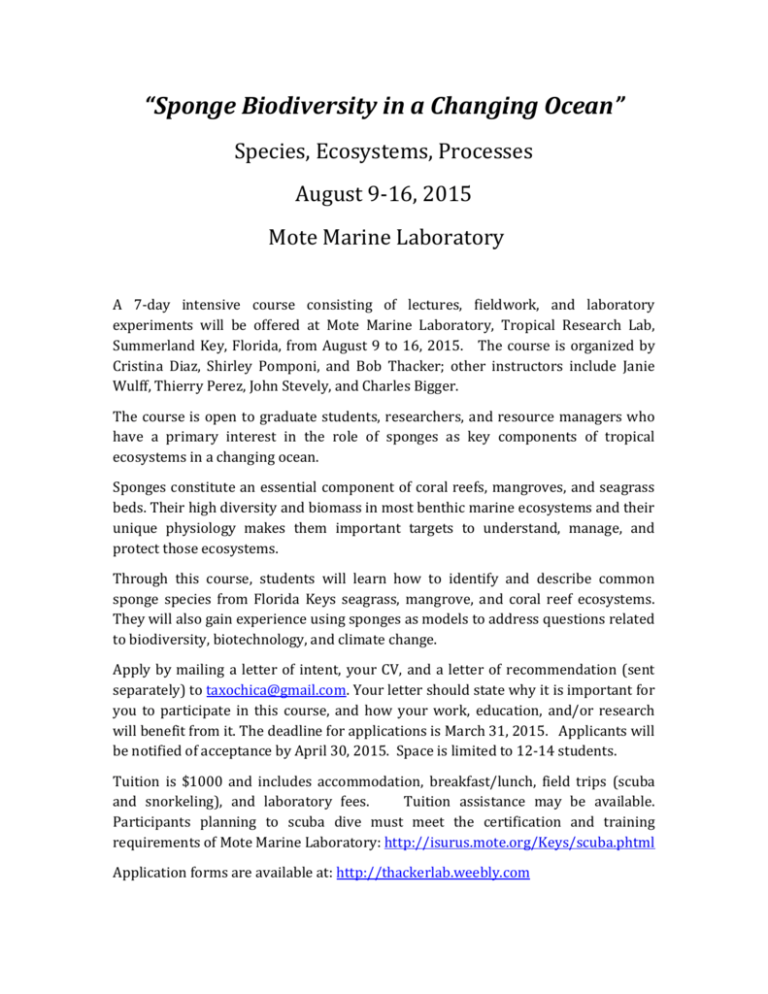
“Sponge Biodiversity in a Changing Ocean” Species, Ecosystems, Processes August 9-16, 2015 Mote Marine Laboratory A 7-day intensive course consisting of lectures, fieldwork, and laboratory experiments will be offered at Mote Marine Laboratory, Tropical Research Lab, Summerland Key, Florida, from August 9 to 16, 2015. The course is organized by Cristina Diaz, Shirley Pomponi, and Bob Thacker; other instructors include Janie Wulff, Thierry Perez, John Stevely, and Charles Bigger. The course is open to graduate students, researchers, and resource managers who have a primary interest in the role of sponges as key components of tropical ecosystems in a changing ocean. Sponges constitute an essential component of coral reefs, mangroves, and seagrass beds. Their high diversity and biomass in most benthic marine ecosystems and their unique physiology makes them important targets to understand, manage, and protect those ecosystems. Through this course, students will learn how to identify and describe common sponge species from Florida Keys seagrass, mangrove, and coral reef ecosystems. They will also gain experience using sponges as models to address questions related to biodiversity, biotechnology, and climate change. Apply by mailing a letter of intent, your CV, and a letter of recommendation (sent separately) to taxochica@gmail.com. Your letter should state why it is important for you to participate in this course, and how your work, education, and/or research will benefit from it. The deadline for applications is March 31, 2015. Applicants will be notified of acceptance by April 30, 2015. Space is limited to 12-14 students. Tuition is $1000 and includes accommodation, breakfast/lunch, field trips (scuba and snorkeling), and laboratory fees. Tuition assistance may be available. Participants planning to scuba dive must meet the certification and training requirements of Mote Marine Laboratory: http://isurus.mote.org/Keys/scuba.phtml Application forms are available at: http://thackerlab.weebly.com Information that must be included in the application: Name Address Phone number Email CV (should include education, research and field experience) One letter of recommendation Brief description of why you want to take the course and how you intend to use what you’ve learned Dive experience: Are you a scuba diver? Do you intend to scuba dive? Participants planning to scuba dive must meet the certification and training requirements of Mote Marine Laboratory: http://isurus.mote.org/Keys/scuba.phtml. Current diving certification Indicate if you are currently certified to dive under the auspices of an AAUSaffiliated institution.
